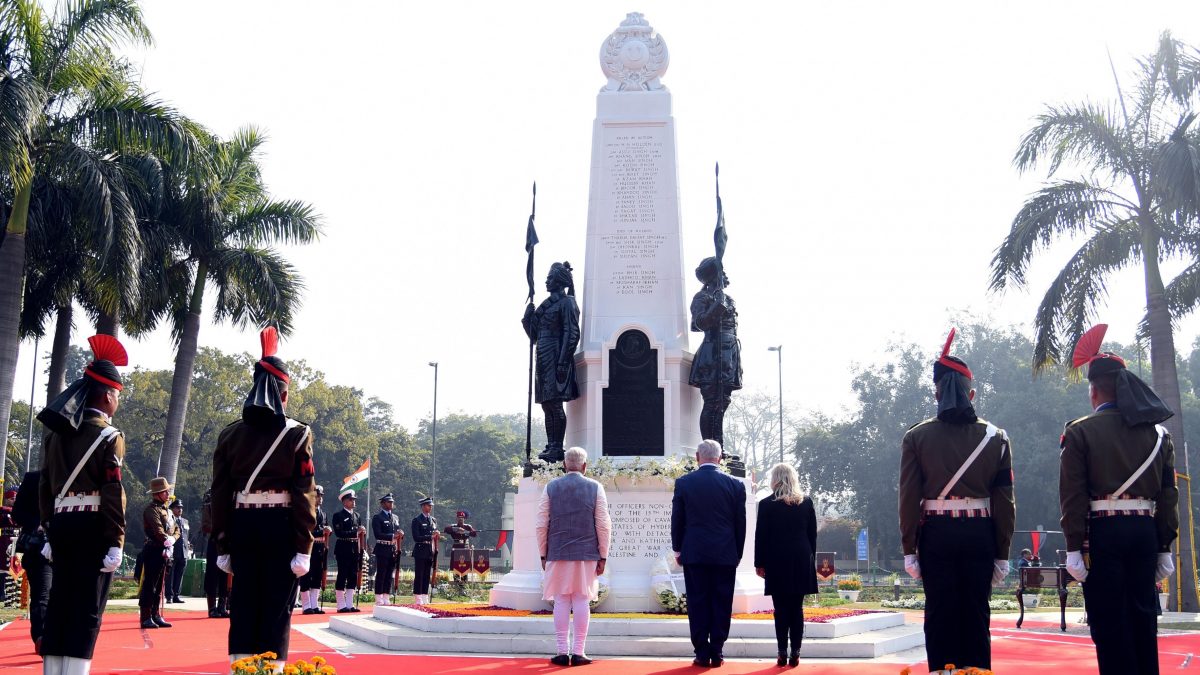On October 1, 2025, at the British Military Cemetery in Haifa, white tombstones glistened under the Mediterranean sun as diplomats, officers, and residents gathered in solemn remembrance. The annual commemoration of the 1918 liberation of Haifa—achieved in what many historians call the last great cavalry charge—once again brought India and Israel into an embrace of shared memory and rediscovered alliance.
The story is both improbable and stirring. On September 23, 1918, Indian cavalrymen from the Jodhpur and Mysore Lancers stormed the fortified Ottoman defences with little more than lances and spears. Against entrenched machine guns and artillery, their charge carried through and liberated Haifa, changing the course of the battle in the closing months of the First World War. Yet, for decades, this extraordinary act faded into the shadows of history—unwritten in Israeli memory and only faintly recalled in India.
Rediscovering a Lost Chapter
The renewed recognition of Haifa’s liberation owes much to the quiet persistence of the Haifa History Association and its former chair, Yigal Graeber. “The person who revealed the story in 1993 was the late Professor Yitzhak Gordon,” Graeber recalled. “But it was forgotten and fell into oblivion. In 2010, we revealed it again, and today we are already at the 15th ceremony.”
For Haifa, the rediscovery was almost a shock. Mayor Yona Yahav admitted that the city itself was long unaware of the depth of this story. “We thought we knew everything about Haifa’s history,” he said. “And suddenly this story came to us—it was extraordinary. At that moment, I decided the city must immortalise it.” Today, Haifa Liberation Day is officially woven into the city’s calendar, its resonance deepening with each passing year.
India’s Sacred Memory
For India, the memory is not just about battlefield heroics but also about identity and sacrifice. At the ceremony, Indian Ambassador to Israel JP Singh reminded the gathering that the story of Haifa lives on not just here, but also in Delhi itself. “We have a square in the capital called Teen Murti Haifa Chowk,” he said. “Every year we hold a ceremony there.”
Impact Shorts
More ShortsThe words echoed the sense that Haifa is not just a historical episode but a symbolic bridge. Indian Air Force attaché Vijay Patil underlined it further: “Haifa Day is an important milestone in Indian history. The bravery and sacrifice of the soldiers have been immortalised in our history books. I hope they will be remembered forever, not only in the hearts of Indians but also in the hearts of Israelis.”
Where History Meets the Personal
The connection is not confined to parades and ceremonies. It lives within the lives of individuals who carry India in their blood and Israel in their everyday existence. For restaurateur Rina Pushkarna, daughter of Indian immigrants, attending the ceremony was both personal and revelatory. “My father came from India and settled here,” she said. “To suddenly discover this courageous connection between Haifa and Indian history is amazing.”
Her words reflect how memory is not merely written in archives but lived through diaspora communities, adding flesh and feeling to the official narrative.
From Oblivion to Alliance
The annual wreath-laying is no longer a matter of isolated remembrance. It has grown into a symbol of the deepening India–Israel relationship—diplomatic, cultural, and strategic. The forgotten charge of 1918, once an obscure chapter, has become a parable of rediscovery. It reflects how nations find in buried history not just stories of valour, but the architecture of present friendship.
For Israel, acknowledging the Indian role in Haifa’s liberation strengthens its bond with a fellow Asian partner. For India, celebrating Haifa underscores its commitment to honouring the sacrifices of its soldiers abroad and highlights its role in shaping history beyond its borders.
The Power of Memory
As the bugle faded and wreaths lay heavy with dew, the cemetery in Haifa became more than a site of mourning—it became a theatre of memory where the forgotten were remembered and the distant made close. What began as a cavalry charge with lances now rides again as a story of two nations bound not by convenience, but by courage.
The annual ritual of remembrance is thus more than a historical commemoration; it is a reaffirmation that history, even when forgotten, can resurface to bind hearts across geographies. In the lances that once charged against machine guns and the wreaths that now lie in silence, Israel and India rediscover each other—through sacrifice, memory, and a friendship reborn.
The writer is the Director of the Centre for Legislative Research and Advocacy, New Delhi. Views expressed in the above piece are personal and solely those of the author. They do not necessarily reflect Firstpost’s views.
)